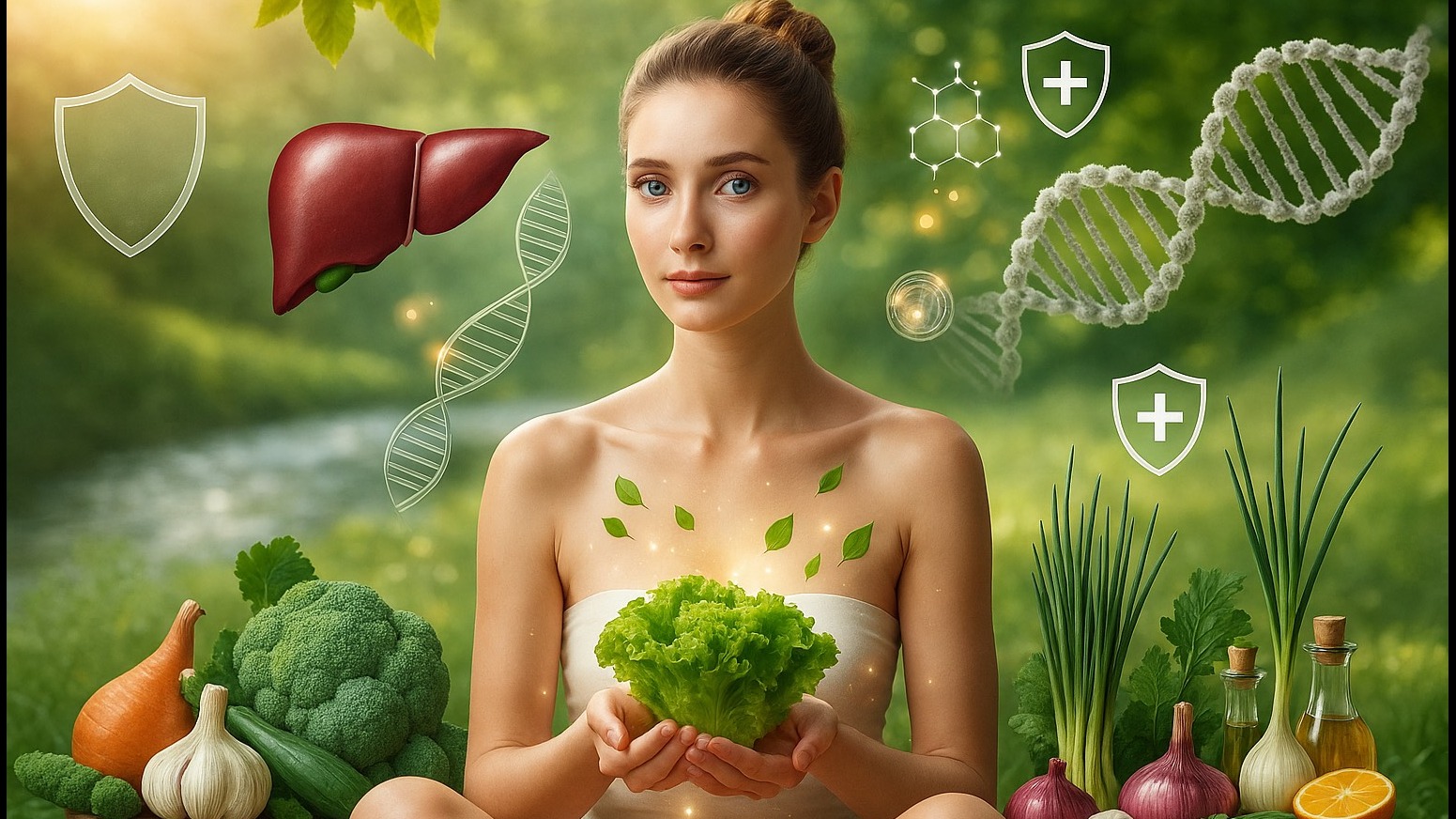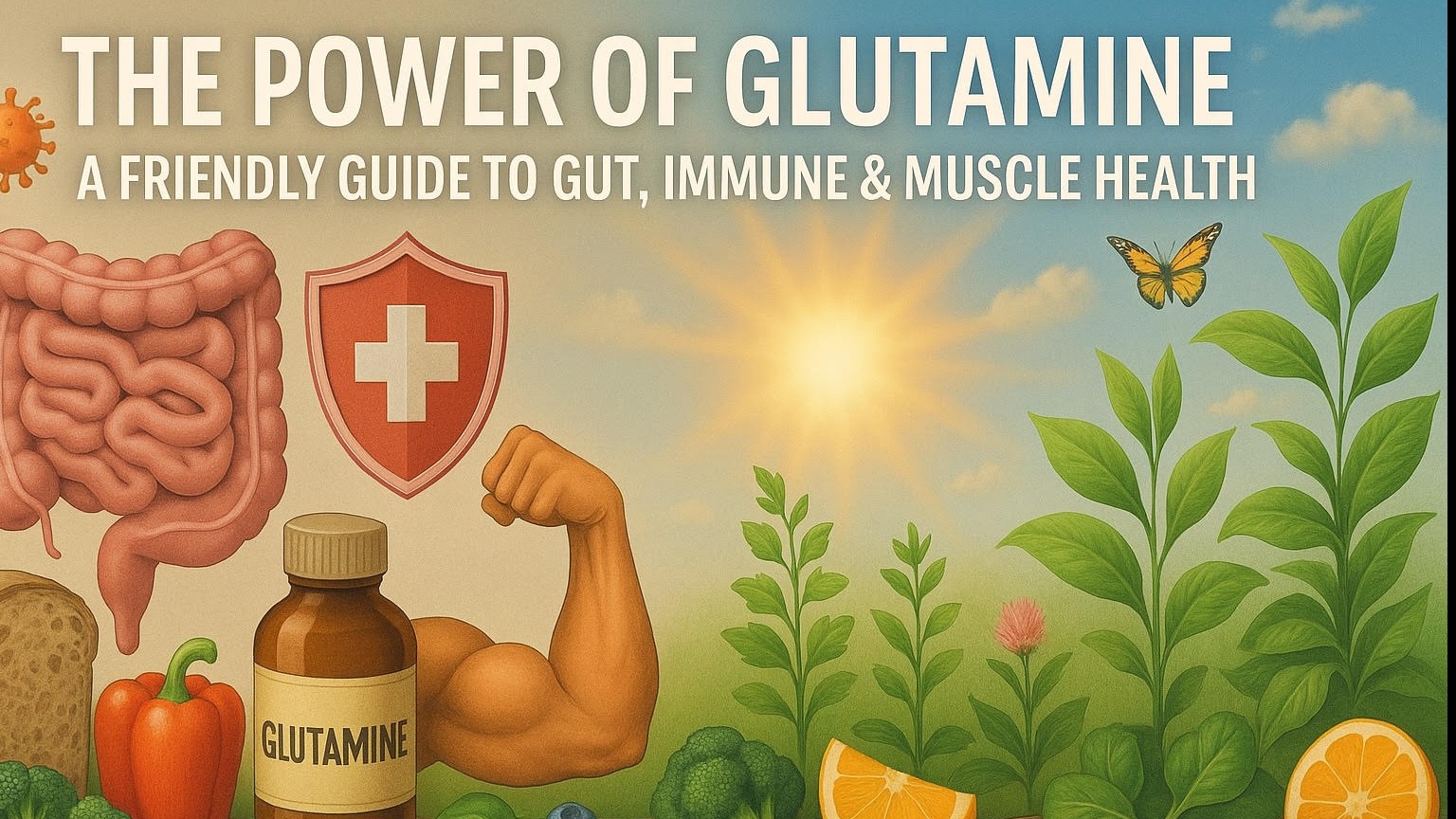
If you’ve been scrolling through wellness TikTok or browsing Instagram health reels lately, chances are you’ve come across the word glutathione. Dubbed the “master antioxidant,” glutathione has exploded across social media for its supposed ability to detox your liver, brighten your skin, boost immunity, and even support anti-aging.
But is it just another trendy buzzword—or is there real science behind the hype?
Let’s break it down in simple terms and look at what the research actually says.
💡 What Is Glutathione?
Glutathione (pronounced gloo-ta-thigh-own) is a powerful antioxidant made in your body. It’s a small molecule composed of three amino acids—glutamine, cysteine, and glycine—and it plays a major role in:
Neutralizing free radicals (unstable molecules that damage cells)
Supporting detoxification in the liver
Strengthening immune response
Repairing DNA and cellular damage
Recycling other antioxidants like vitamin C and E
It’s so essential that scientists often call it “the master antioxidant.”
🔥 Why Is It Trending Right Now?
Glutathione isn’t new—it’s been studied for decades—but it’s having a moment because of its:
Use in skin-brightening therapies
Role in longevity and anti-aging research
Growing popularity in IV therapy clinics
Buzz among functional medicine influencers for “detox” and immune health
Celebrities and wellness gurus are touting glutathione IVs or liposomal glutathione for glowing skin, better energy, and even hangover recovery. But what does the science say?
Scientifically Backed Benefits of Glutathione
1. Powerful Detox Support (Especially in the Liver)
Your liver is your body’s main detox organ, and glutathione is a key player in how it neutralizes and eliminates toxins. It's especially important for breaking down heavy metals, alcohol byproducts, and environmental pollutants.
📚 Study Highlight:
A 2018 clinical trial published in BMC Gastroenterology showed that glutathione supplementation significantly improved liver enzyme levels in patients with non-alcoholic fatty liver disease (NAFLD), suggesting improved liver function (BMC Gastroenterol. 2017;17(1):96).
2. Immune System Defense
Glutathione helps regulate inflammation and keeps white blood cells functioning properly. When your immune system is fighting an infection, your glutathione levels can drop—making supplementation helpful during illness or high stress.
📚 Study Highlight:
According to research in Clinical Immunology, glutathione deficiency impairs immune cell function and contributes to oxidative stress in chronic diseases like HIV (Clin Immunol. 2000;97(2):125-33).
3. Anti-Aging and Cellular Repair
Aging is associated with increased oxidative stress and declining glutathione levels. Boosting glutathione can help reduce DNA damage, support mitochondrial health (your cell’s “energy factory”), and even improve skin clarity.
📚 Study Highlight:
A study in Dermatology found that oral glutathione supplementation lightened skin tone and improved skin elasticity in women after four weeks, supporting both anti-aging and aesthetic uses (Dermatol Ther. 2017;30(1):e12480).
4. Brain & Mood Support
Low glutathione is linked to neurological and cognitive disorders. It plays a role in protecting brain cells from oxidative stress and helps regulate inflammation in the brain.
📚 Study Highlight:
Research published in Neurotoxicity Research found that boosting glutathione could help protect against neurodegenerative diseases like Parkinson’s and Alzheimer’s (Neurotox Res. 2012 Jan;21(1):43–54).
🧘🏽♀️ Glutathione in Functional & Integrative Medicine
In integrative and functional medicine, glutathione is considered foundational. Practitioners often test glutathione levels and recommend protocols that support its production naturally or through supplements—especially for clients with:
Autoimmune disease
Chronic fatigue
Hormonal imbalance
Mold toxicity
Lyme disease
Heavy metal exposure
IV therapy, liposomal supplements (liquid form with higher absorption), and precursors like NAC (N-acetyl cysteine) are all used to optimize levels.
🥦 How Can You Boost Glutathione Naturally?
While your body can make glutathione, you can support it with food, lifestyle, and targeted supplements.
Top Ways to Boost Glutathione:
Eat sulfur-rich foods: broccoli, Brussels sprouts, garlic, onions
Take NAC or alpha-lipoic acid: proven precursors to glutathione
Exercise: Moderate aerobic activity boosts glutathione production
Reduce alcohol: Excess alcohol depletes glutathione
Get enough sleep: Sleep is critical for cellular repair and glutathione production
⚠️ Should You Supplement with Glutathione?
If you have chronic illness, frequent infections, or toxin exposure, supplementation may be worth considering. Glutathione supplements come in several forms:
Liposomal Glutathione: Highly absorbable
IV Therapy: Directly infused (often used in clinics)
NAC or Glycine: Help your body make its own
Most people do well with 250–500 mg/day of liposomal glutathione or 600–1,200 mg/day of NAC. Work with a licensed functional medicine practitioner for a personalized plan.
✨ Final Thoughts
Glutathione isn’t just another wellness trend—it’s one of the most important molecules your body makes. From detox and immune support to anti-aging and brain health, this "master antioxidant" is finally getting the spotlight it deserves.
And yes—while TikTok might be buzzing with beauty influencers talking about glutathione for skin lightening, the real magic lies in its ability to heal and protect your body at the cellular level.
Backed by science, praised by integrative doctors, and now loved by social media? It might just be the supplement your wellness routine is missing.
 Add Row
Add Row  Add
Add 










Write A Comment